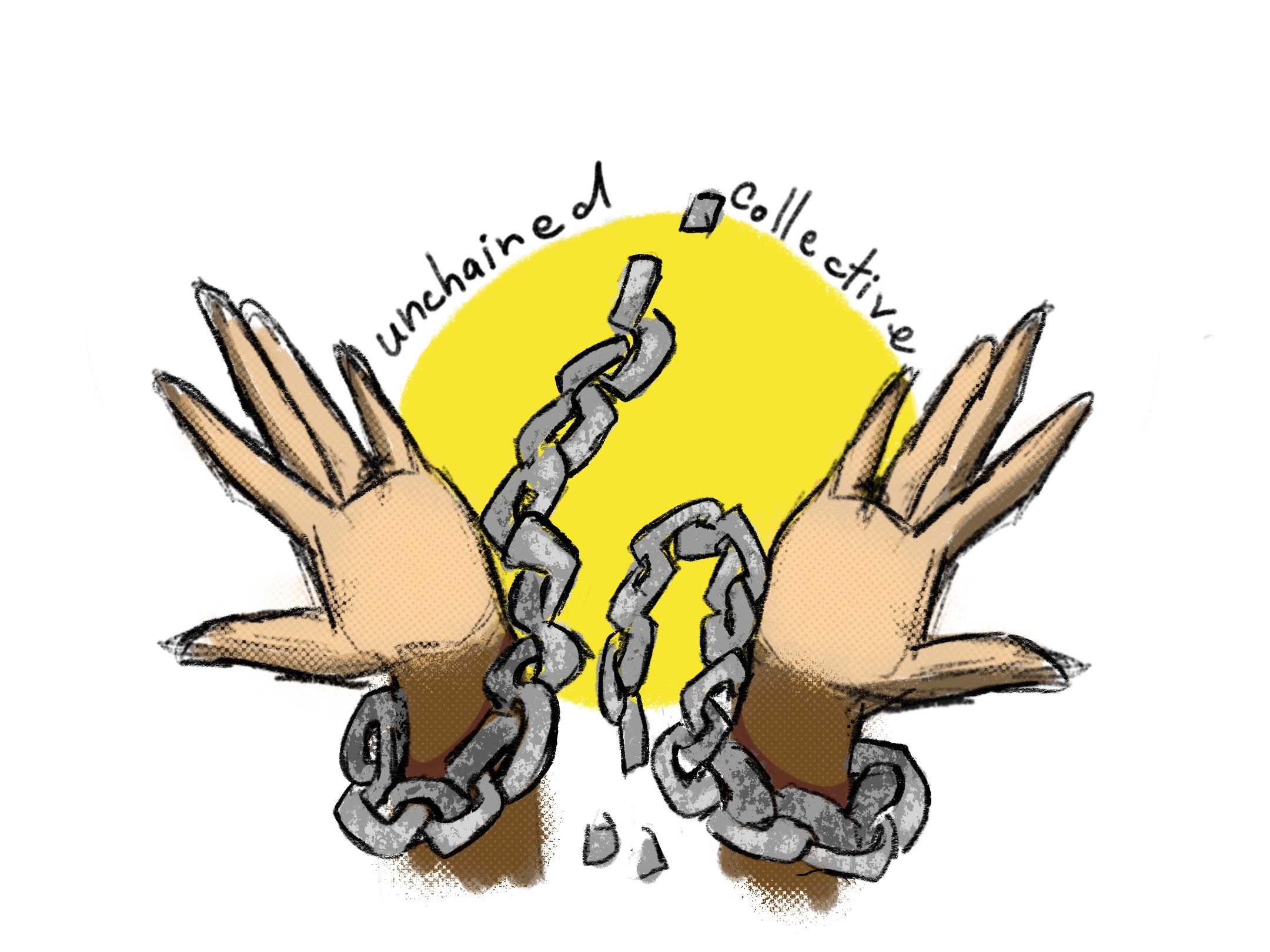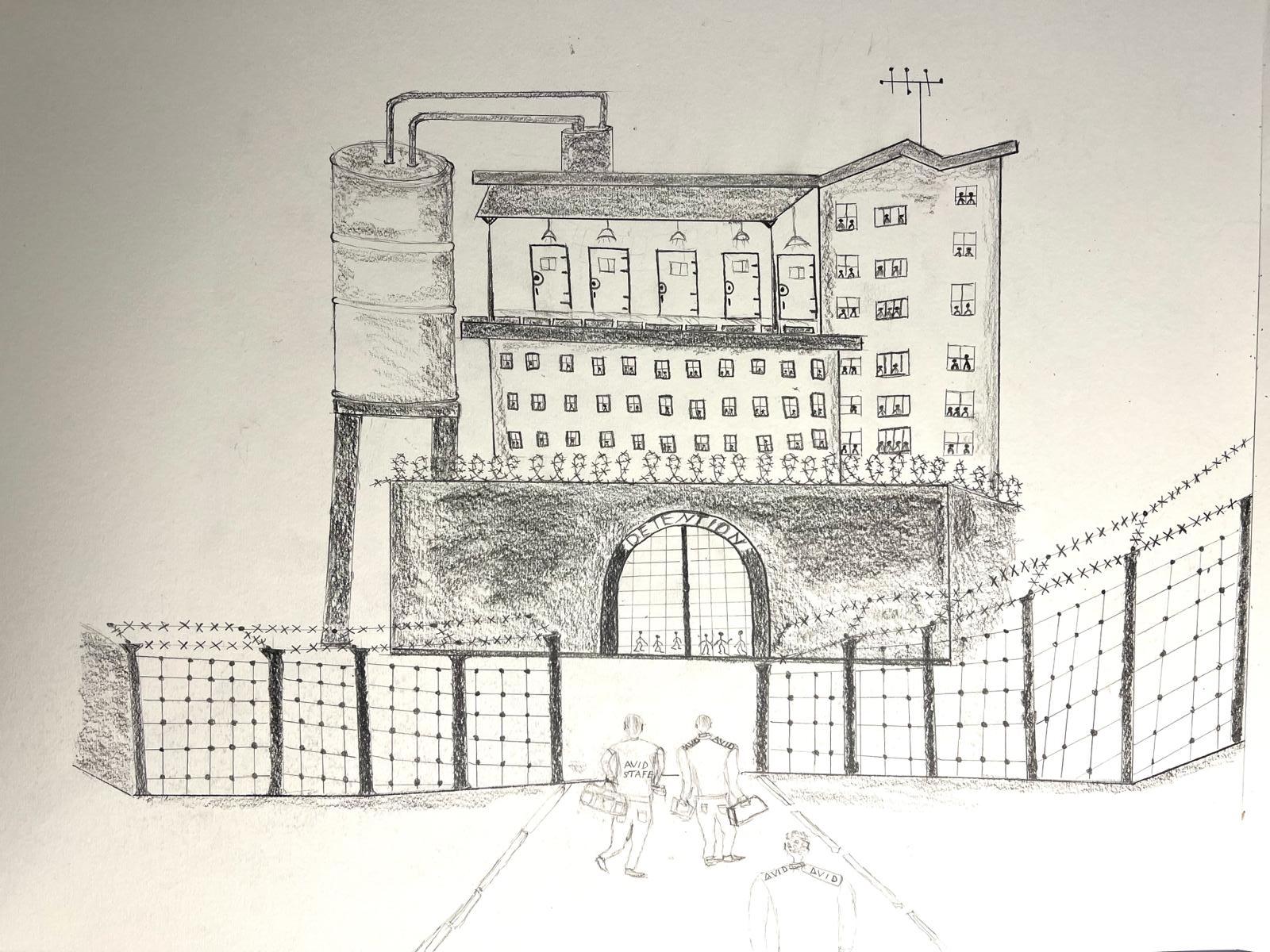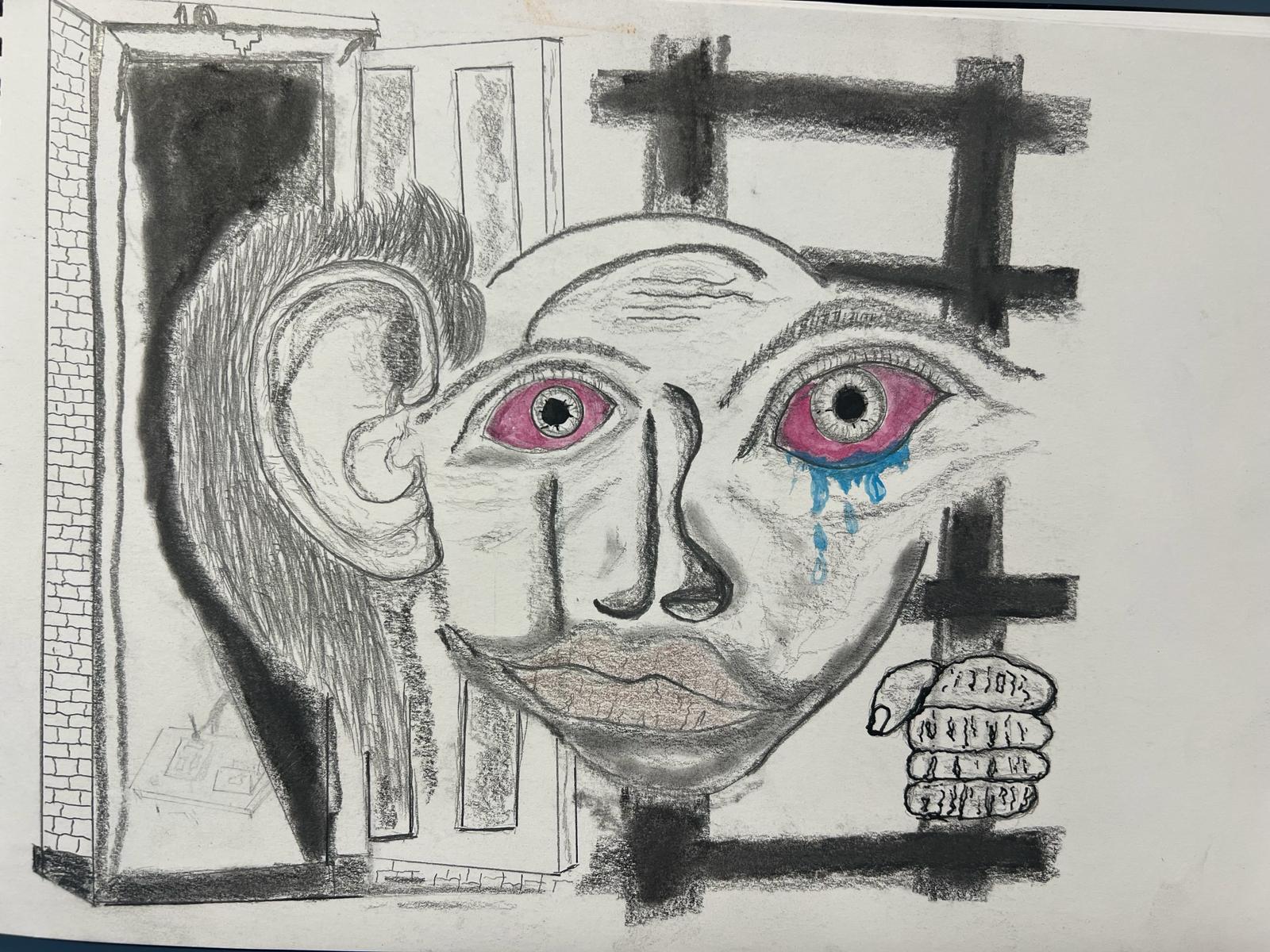Immigration Detention, The Hidden Costs: Podcast Series Introduction
Posted:
Time to read:
Guest post by the Unchained Collective. The Unchained Collective is a group of individuals, some with firsthand experiences of immigration detention and others without, who advocate the transformative power of art to confront the oppressive systems of border violence, and particularly immigration detention. The collective’s driving vision is to end immigration detention for all people, everywhere, recognising it as a violent perpetuation of colonial domination. Most members of the Unchained Collective are based in Britain, where the collective was established in late 2023. This is the first post of a themed series called "Immigration Detention - The Hidden Costs" based on the homonym podcast, of which you can listen to the introduction here.
The detention system in the UK is “designed to break your soul”, Derek, a member of the Unchained Collective commented in a recent conversation on the process of creating this podcast. The border control bureaucratic machinery is underpinned by an entanglement of arbitrariness, indifference, and cruelty. In 2021, around 24,500 people entered immigration detention in the UK – a return to pre-pandemic levels. Of the latter, 81% had previously claimed asylum in the UK - a growing trend if compared with previous years. These people were detained although, contrary to news fabricated in media anti-refugee propaganda, asylum seekers in 2023 only represented 6% of all migrant people in the UK. All this whilst the system is being increasingly expanded and the cost of immigration detention has hit the highest since records began - illuminating the profit-making nature of the detention industrial complex. The government has plans to open two new detention centres, increasing the number of people who can be detained at any one time by 33%. Regardless of whether they sought asylum or not, people detained in the UK are confined indefinitely as there is no statutory upper time limit to this form of incarceration.

As we share our first introductory podcast in the series ‘Immigration detention, the hidden costs', we reflect upon what it meant to work collectively to puncture this reduction of an individual’s voice to a bureaucratic object, devoid of agency and personhood, as well as to transform ‘voice’ into something different. Through conversations, we attempted to recast stories told by people who have experienced incarceration because of their immigration status into tales of the reverberating harms of immigration detention across multiple ecological levels and scales. These stories are tales of suffering but also courage, survival and resistance. They are a means to achieve ‘freedom’ and a political call to arms. The podcast series therefore is infused with politics at every stage; the design, framing and editing of the conversations,as well as the overall day-to-day workings of the project are all conducted in and against an environment which has embedded ‘hostility’ into every aspect of the lives of people governed as migrants.
Telling one’s story in this politically intentional context of hostility characterised by the erasure of one’s voice and identity becomes a necessarily conscious and political act. If those caught in the midst of the immigration system experience violence, oppression and negation of their personhood, we need to counter this system and create safe spaces that allow people to feel protected and free enough to express themselves in their unique way, to share what they think is important. The Unchained Collective was created to establish such a space and facilitate sustained creative freedom. The outcome is the creation of very different accounts to those extracted and produced by the Home Office. The processes of generating and editing these podcasts are infused with political aims - including the distillation of each podcast into 20 minute segments, designed to provoke a wide audience to think critically about immigration detention and its harmful effects and envision the end of this torturous system.

This collaborative endeavour has been an incredible source of learning and solidarity. Walking together, however, has not always been easy, particularly considering the diverse perspectives, experiences and levels of exposure to state violence characterising our collective, as well as the complex negotiations with the academic-industrial complex from which the limited funds we had access to were obtained. These negotiations involved, for instance, confronting the violent denial of some collective members’ right to receive economic acknowledgment for the time and valuable knowledge they contributed to this project, relying on the UK state’s formula of right-to-work checks. Such unjust barriers compelled us to creatively navigate tensions at the system’s interface, actively seeking margins for disobedience and resistance to challenge power imbalances.
Another great challenge we had to navigate, expressed particularly by one of the members of the collective, concerned issues of confidentiality as a (insidious) form of ‘protection’. The act of giving pseudonyms, so common in research endeavours, seems innocuous and even a form of protection for participants. Little attention has been paid to the violent forms of silencing and agency undermining produced by this practice. Discussions around this issue in our group resulted in comments by those with lived experience of border violence such as ‘I have nothing to hide, so why can’t I use my name?’, ‘what is a voice when you can’t put your name to it?’, ‘even changing my name is a form of intimidation’, ‘I want to go public about what has happened to me, but they still have ways of silencing you, by taking your name!’ and ‘what are they [the Home Office] hiding that they need to create this fear?’.

These comments compel us to address uncomfortable questions. Are we unintendedly reiterating the violence of the system by offering “protection” in the form of pseudonyms for those who are legally vulnerable to the violence of border controls? What does it mean to be visible in a system where you are acknowledged with no agency nor rights? How do we try to counter the border regime without inadvertently reproducing its violence which spreads through the everyday infrastructures of our (supposedly democratic) societies ?
The experiences shared in the podcasts expose the ‘hostile environment’ machinery put in place by the UK government, extending beyond bureaucratic or official encounters and manifesting in ways which are sometimes unexpected. Through conversations between those who have lived and survived through immigration detention, this podcast series illuminates the hidden violence of the border system, also asking important questions about alternative futures based on justice and freedom for all.
Ultimately, these powerful accounts serve as a collective call to action. When future books chronicle the history of systematic incarceration and torture of racialised individuals for crossing borders, what role would you like to have played in that history? This is a question this podcast series compels you to ask yourself.
You can listen to the introductory episode embedded above, on Acast, and on Apple Podcasts.
Music by Hear Me Out.
Illustrations by Preksha Pranjali.
Hosted on Acast. See acast.com/privacy for more information.
Share:








